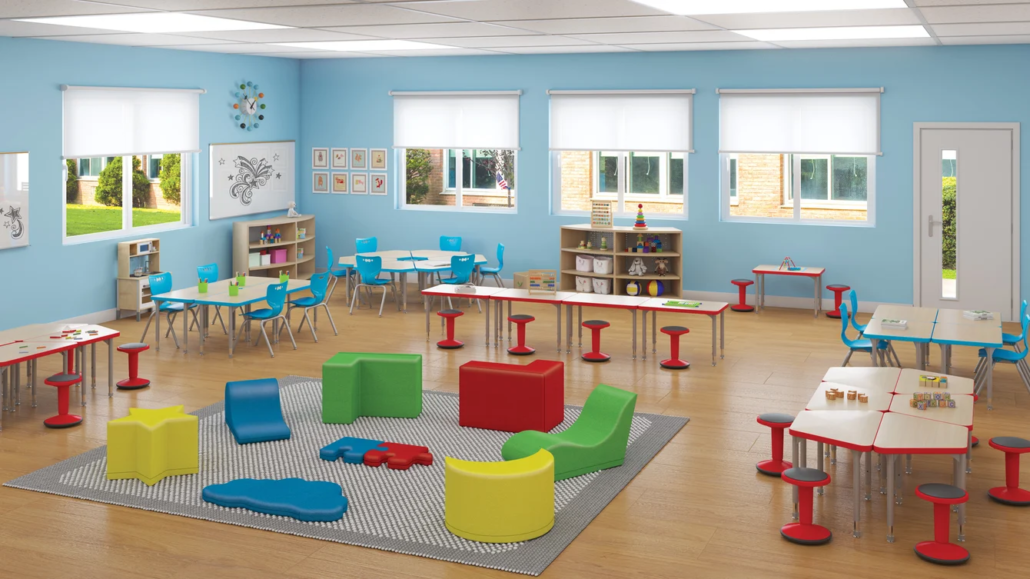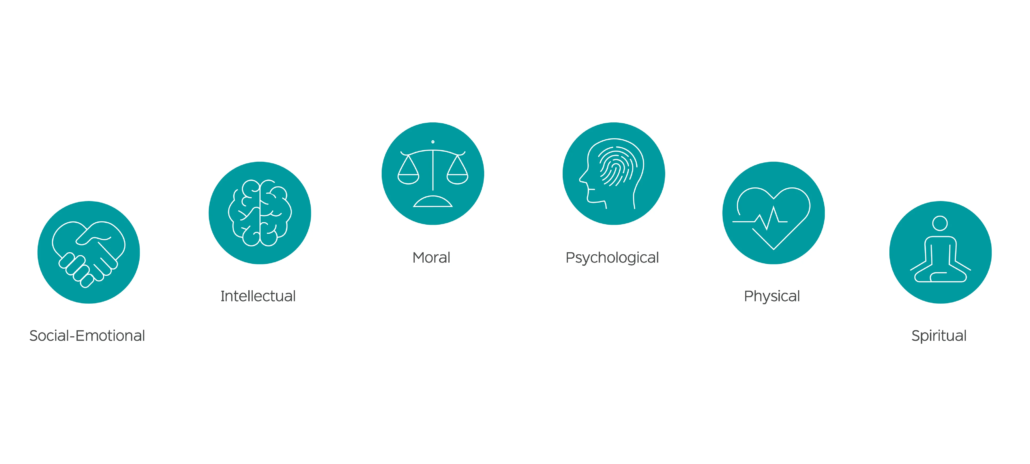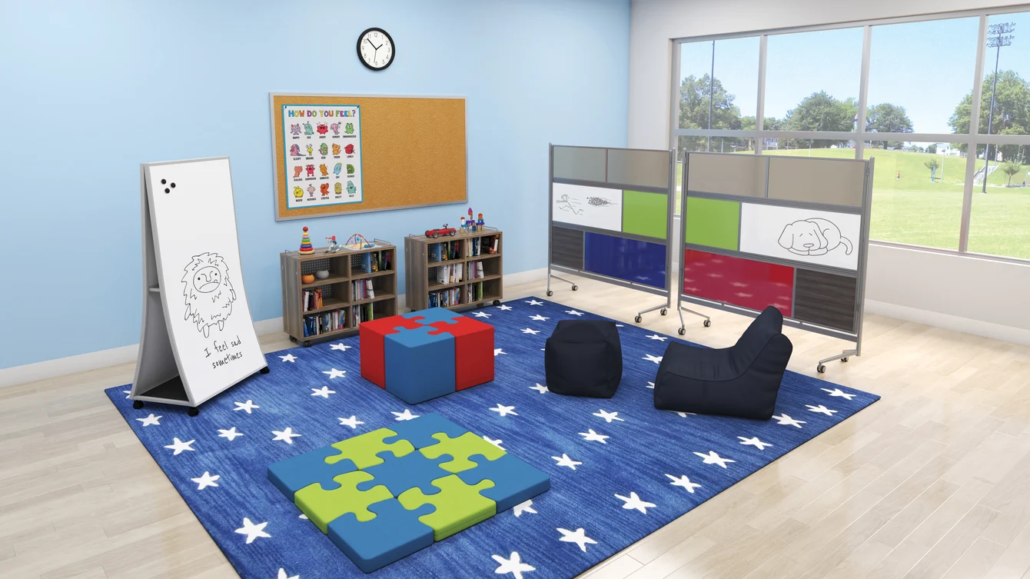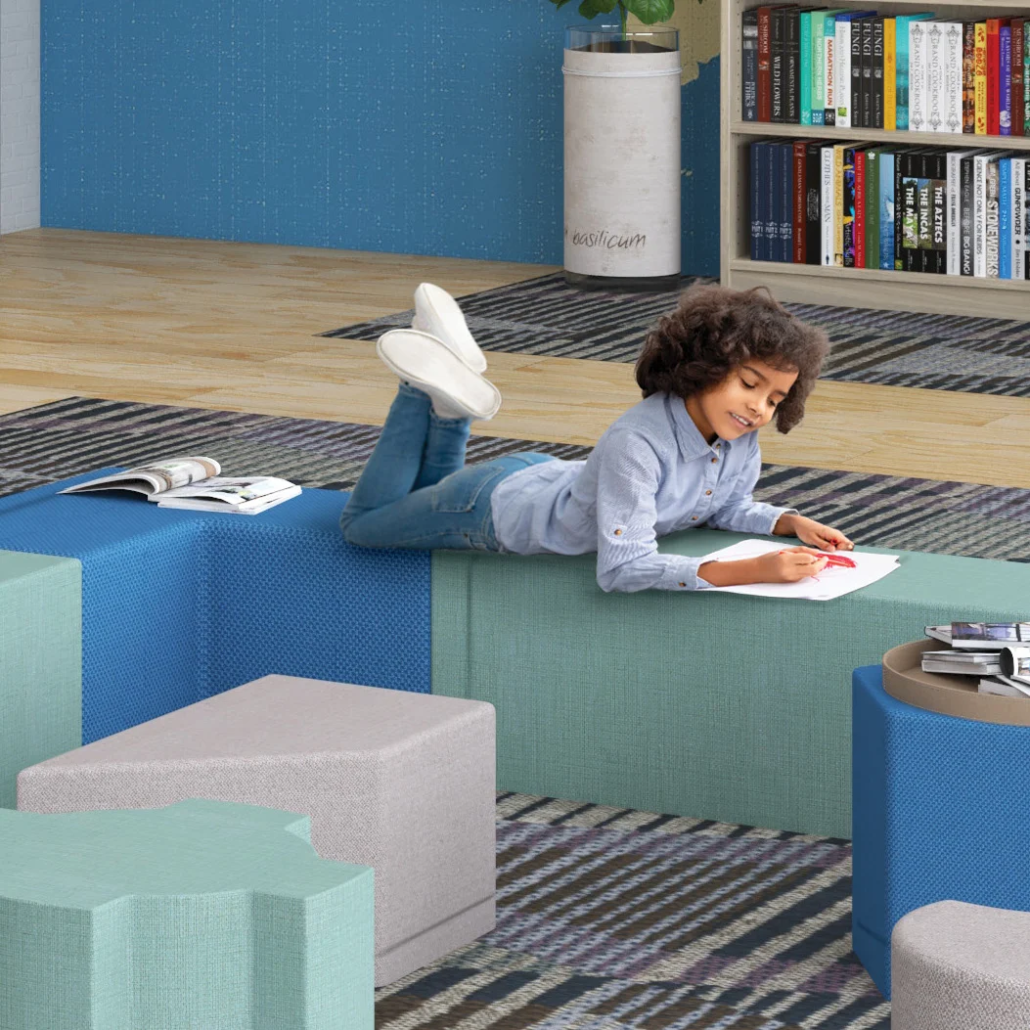It’s widely known that students benefit from schools swapping out desks with more comfortable seating arrangements. Adaptive, mobile, foam soft seating is the ultimate tool for creating a flexible, inclusive, active-learning environment. MooreCo’s three new lines of lightweight, durable, All Foam Soft Seating encourages choice and fosters autonomy, allowing students and teachers to create personal spaces or collaborative breakout spaces. Students become agents in their learning and begin to place value on their physical, mental, and emotional well-being. Let MooreCo help you meet the needs of your students with flexible seating!

Why is flexible seating beneficial to students?
At MooreCo, we believe that thoughtfully designed products can help students make monumental leaps in six essential areas of their development. Our Thrive Philosophy is based on expert research into the physical, intellectual, psychological, social-emotional, spiritual, and moral needs of students and how our products help met those needs.

All Foam Soft Seating is the newest addition to our inclusive, versatile, adaptable line of products. Presented in three collections, All Foam Soft Seating is not just about comfort and playfulness, it’s about creating an environment that meets each student where they are developmentally and helps them discover their ideal position for learning. Why should students have comfy chairs? We’ve outlined the benefits of soft seating and how it meets specific developmental needs for students to help them thrive.

Meet Students’ Intellectual Needs
Movement ignites areas of the brain that improves cognitive function. Portable seating in inventive shapes supports different learning styles and creates a stimulating environment full of imagination, curiosity, and abstract thinking.
Meet Students’ Physical Needs
Adaptable, mobile seating accommodates the different physical needs of a diverse group of students. Students can find a position that feels comfortable and benefit from adding movement to their day.
Meet Students’ Psychological Needs
An adaptable learning environment gives students a sense of control and autonomy over their space, nurtures their well-being, and cultivates a sense of safety and belonging. Freedom to create a learning environment that fits their personal comfort reduces stress and enhances focus.
Meet Students’ Social-Emotional Needs
Flexible learning environments encourage cooperation and collaboration and create an inviting space to explore and connect. Mobile furnishings provide opportunities to strengthen communication skills and team building.
Meet Students’ Spiritual Needs
A nurturing, tranquil space where students are physically and mentally supported fosters personal growth and a deeper sense of purpose. Students who have opportunities for internal reflection and emotional exploration are more resilient and better equipped for facing challenges.
Meet Students’ Moral Needs
Environments that encourage collaborative seating and interaction fosters sharing, inclusivity, and mutual respect amongst peers. By encouraging playful, productive engagement, students learn about one another and develop empathy, cooperation, and community.

